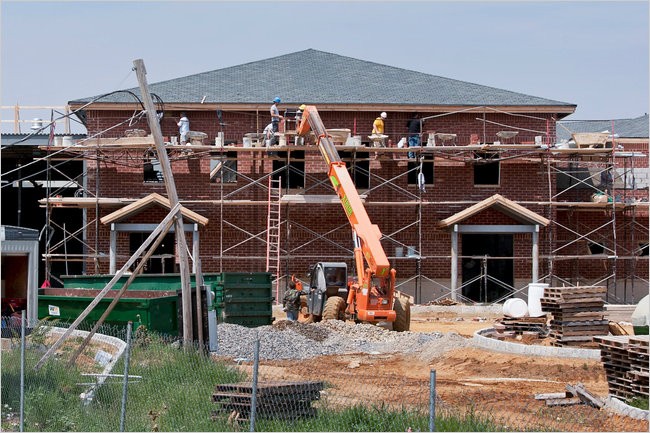Should the Build America Bonds Program Be Renewed
Post on: 18 Апрель, 2015 No Comment

Of all the various tax breaks and stimulus measures squeezed into the tax cut compromise that is expected to pass this week, one provision is noticeably absent: an extension for the Build America Bonds program. As explained last week. Republicans are vehemently against allowing the program to continue. Some theorize that the party wants to make it harder on states with fiscal problems, so to force them into bankruptcy. But this warrants a little additional explanation: just what are these Build America Bonds, and why do states like them so much?
Build America Bonds are essentially a special type of municipal bond issued by state or local government entities. There are actually two kinds of these bonds. One sort provides bondholders a tax credit from the federal government for 35% of the interest. The other sort provides bond issuers (a troubled state, for example) a subsidy that allows them to issue bonds at a lower interest rate, competitive with high-grade corporate debt.
The latter form has proven to be more popular. In short, it provides state and local governments the ability to fund their deficits more cheaply, thanks to a handout from the federal government. So you can probably see why they like the bonds so much. Without them, their borrowing costs would be much greater, as the Build America Bonds sometimes shave as much as a few hundred basis points off the interest rate they must pay investors.
If this bond program is not renewed, there will be a few consequences. First, municipal bond investors are likely to get hit with losses. The popularity of the Build America Bonds has driven municipal bond yields down and prices up. If demand falls, then yields will rise again, and prices will decline.
The fate of the states and municipalities that relied on these bonds for funding, however, is even more serious. The tax receipts that these governments rely on have shrunk since the recession began. Without the ability to issue cheap debt, they will have to cut programs, initiatives, and probably jobs. That is, if they can avoid bankruptcy.
So why are Republicans advocating ending the program? Because they likely don’t want to see the federal government continue to subsidize reckless spending on the state and local levels. They may view tough-love as the best approach to forcing states to cut their spending.

If the Build America Bond program isn’t renewed, and at this point it doesn’t look like it will be, then it will be very interesting to see how state fiscal crises unfold. In certain states, like California, deep cuts or tax hikes may be necessary if they intend to avoid defaulting on their debt. The big fear here from a macroeconomic perspective is that the state and local governments will begin mass layoffs, which will neutralize job growth in the private sector.
Moreover, if municipal bond defaults do result, then bond insurers will have another mess on their hands. They’re still trying to survive their poor bets on subprime mortgage-backed securities, and have often priced their guarantees assuming that the federal government would stand behind municipal debt. Without federal rescues, these bond insurers could have a lot more trouble come their way.
Quick Update: An investor e-mailed me, noting that these bonds can only be used to fund new capital projects. Of course, since money is fungible, it’s plausible that a state or local government entity could use this funding for already planned projects, while using tax receipts to over other costs like debt expense, though the investor doesn’t believe this phenomenon is a very common use. Of course, the lack of funding for such projects would still translate into fewer jobs, as explained. The investor also says that the main problem the market sees with fewer of these bonds is a smaller investor base, since the Build America Bonds were more attractive to a wider range of investors who weren’t normally interested in munis. As mentioned this should cause muni yields to rise and prices to fall.














